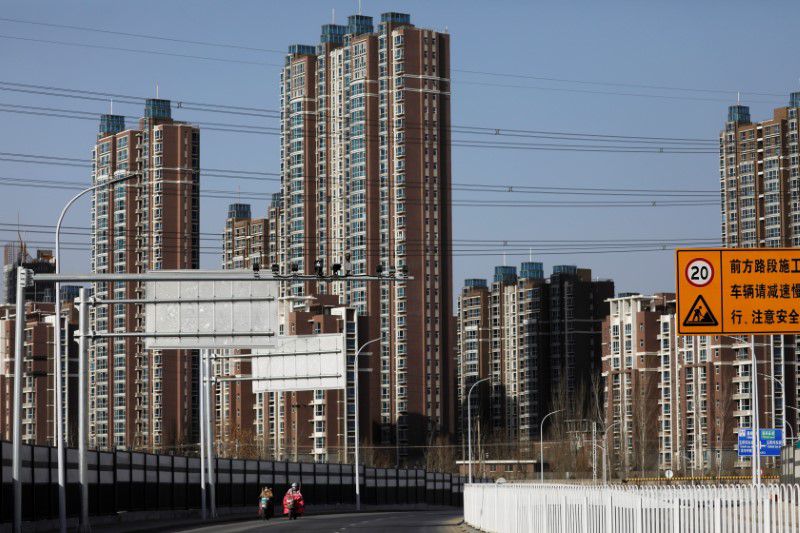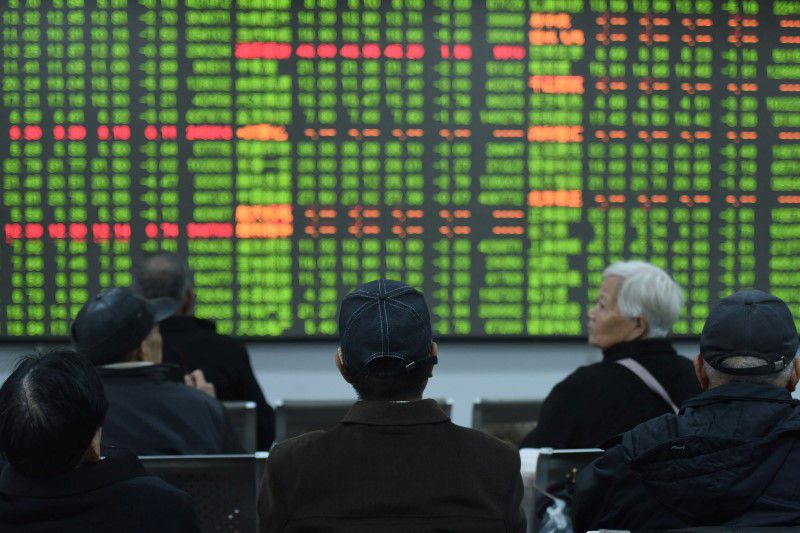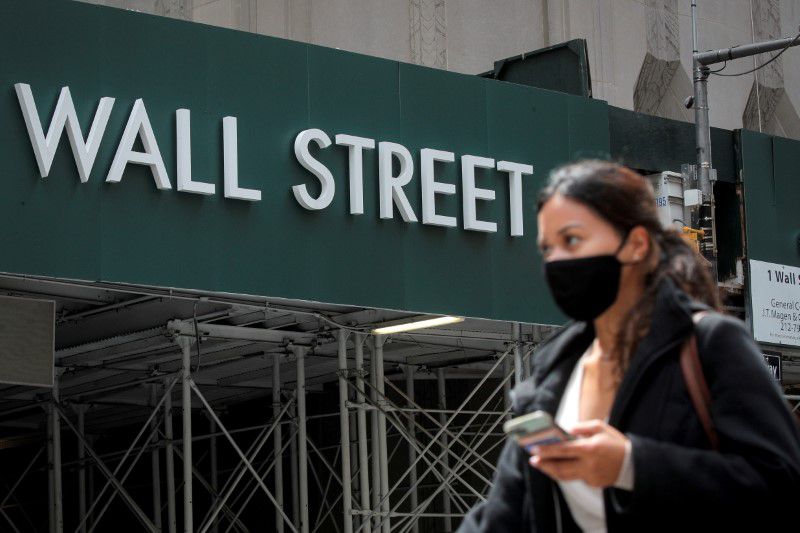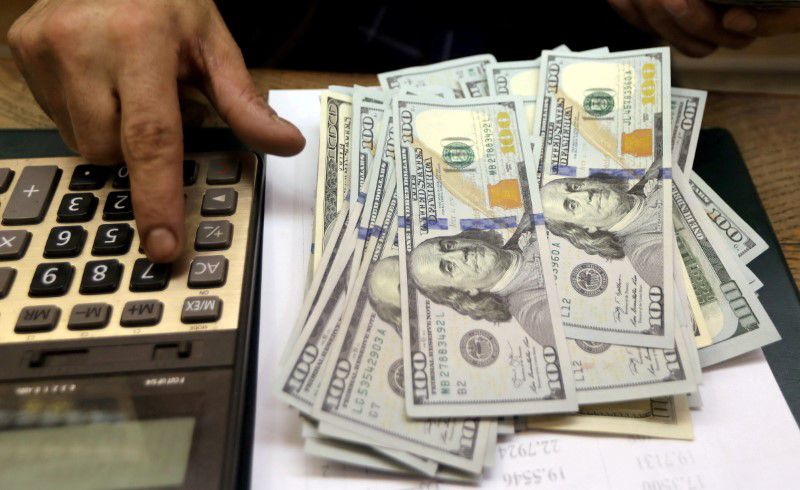WORLDWIDE: HEADLINES
Global investors bet on China’s rental property amid shifting political winds

Beijing’s regulatory firestorm is hitting large swathes of China’s economy, but global investors including Blackstone and Warburg Pincus are ramping up bets on Chinese rental properties, judging the political wind is blowing in their favor.
China has cracked down on private tutoring, brought monopolistic tech giants to their knees, and stepped up curbs on home buying. But Beijing is wooing capital to help provide rental housing and is attracting plenty of institutional interest.
In China, “people need to be housed, but houses have become too expensive to buy. You need to have housing for rent,” said Graeme Torre, managing director of APG Asset Management, which has entered China’s rental housing market in partnership with U.S. property developer and operator Greystar.
“We like to invest with policy rather than trying to avoid it or invest against it. So I’d like to think it’s politically correct,” Torre said, estimating APG will commit around 1 billion euros ($1.17 billion) into Chinese rental housing over the next 3-5 years.
Centralized long-term rental apartments – or multifamily as they’re called in the United States – are the best solution to the housing affordability issue in China’s cosmopolitan cities, said Qiqi Zhang, managing director of Warburg Pincus (WP.UL).
“We think long-term rental housing is the next big opportunity in China, like logistics real estate a decade ago, or data centres five years ago.”
The U.S. private equity giant has backed Chinese apartment rental brands including Mofang, Ziroom, TULU and Base.
There was little institutional interest in China’s rental property market before 2017, when President Xi Jinping told the 19th Communist Party congress China will encourage both housing purchase and renting. Beijing has stepped up calls this year to increase supply of rental housing.
Among measures China has rolled out to revamp a market dominated by retail landlords, institutional investors hail two recent incentives – a big tax break effective this October, and the launch of a market for real estate investment trusts (REITs).
Full coverage: REUTERS
China investors turn to renewables, chips, to avoid regulators’ attention

Investors in China are turning to semiconductors, renewable energy and consumer-focused firms in the belief they offer safe-harbour from a blizzard of regulatory action that has battered confidence and forced funds to overhaul their portfolios.
Money managers view months of crackdowns that have hammered shares in sectors from tutoring to big tech as part of a major push from China’s Communist Party leadership to pursue common prosperity at the expense of private-sector profit.
Yet as selling has wiped billions from the value of companies in the crosshairs, such as online giants Tencent (0700.HK) and Alibaba (9988.HK), share prices of firms seen on the right side of reform have surged.
Since June, for example, China indexes of clean energy stocks (.CSI399808) and semiconductor firms (.CSIH30184) are up more than 30% compared with a 5% fall in the broader market (.CSI300) and a 15% drop in Hong Kong tech shares (.HSTECH).
“The buying has come from all kind of investors,” said Credit Suisse senior investment strategist Suresh Tantia.
“Foreign investors’ mutual funds, they still need to allocate their money in China due to their mandates so they are now wanting to invest in line with where the government is delivering support,” he said.
Full Coverage: REUTERS
WORLDWIDE: FINANCE / MARKETS
Asian shares fall as Delta fears eclipse Wall Street uptick

Asian shares failed to follow a strong close on Wall Street with fears about the spread of the Delta variant of the coronavirus weighing on sentiment even as tame U.S. inflation eased fears the Federal Reserve would rush to reduce its economic support.
That data also caused dollar to retreat against most major currencies and U.S. Treasury yields to edge down overnight though both were steadier in Asian hours.
MSCI’s broadest index of Asia-Pacific shares outside Japan (.MIAPJ0000PUS) dropped 0.25% in early trading, dragged by a 0.24% decline in Chinese bluchips (.CSI300). The Hong Kong benchmark (.HSI) fell 0.2% while Australian shares (.AXJO) were largely flat and Japan’s Nikkei (.N225) rose 0.35%.
U.S. stock futures were little changed, with S&P 500 e-minis down 0.02%.
The weaker performance by Asian benchmarks contrasts with the situation elsewhere in the world. On Wednesday the MSCI all-country index (.MIWD00000PUS), a gauge of stocks across the globe, hit a record high.
Full coverage: REUTERS
Oil prices steady after US call for more oil raises supply concerns

Oil prices were steady on Thursday following two days of gains after a call from the United States, the world’s top oil consumer, for major producers to boost output reinforced supply concerns as economies ease their coronavirus restrictions.
Brent crude futures edged higher by 5 cents to $71.49 a barrel by 0216 GMT while U.S. West Texas Intermediate (WTI) crude futures gained by 4 cents to $69.29.
U.S. President Joe Biden’s administration on Wednesday urged the Organization of the Petroleum Exporting Countries (OPEC) and its allies, known as OPEC+, to boost oil output to tackle rising gasoline prices that they see as a threat to the global economic recovery.
Data from the US Energy Information Administration on Wednesday showed that fuel demand in the top global crude user is averaging 20.6 million barrels per day (bpd) over the past four weeks, roughly in line with 2019 levels, and U.S. refiners slightly increased the amount of crude they processed last week.
Dollar off 4-month high as cooling inflation eases pressure for Fed

The dollar held near a four-month peak against major peers on Thursday after retreating overnight as a cooling in consumer inflation tempered bets for an earlier tightening of U.S. monetary policy.
The dollar index , which measures the greenback against a basket of six rivals, was little changed at 92.890, following a 0.19% decline from Wednesday, when it rose as high as 93.195, a level not seen since April 1.
The consumer price index rose 0.5% last month, in line with economist estimates but down from the 0.9% advance in June. Inflation eased in some areas where Fed policymakers had indicated price pressures would likely prove temporary, such as used cars.
The Fed has made a labour market recovery a condition for phasing out its asset purchase programme and raising interest rates, while generally viewing current inflationary pressures as transitory, although there has been debate about how long those pressures could last.
The Fed is “likely to take some comfort” from the CPI report, David de Garis, an analyst at National Australia Bank, wrote in a note to clients.
“For now, the focus returns more fully to the rate of improvement in the state of the labour market.”
The euro was little changed at $1.1740 after retreating from a four-month low of $1.1706 on Wednesday, which brought it just two tenths of a cent from the weakest level since early November.
The dollar eased 0.07% to 110.355 yen , continuing to pull back from a five-week high of 110.80 reached overnight.
However, many analysts still expect the Fed to announce a tapering of stimulus this year, potentially as soon as next month.
Full coverage: REUTERS